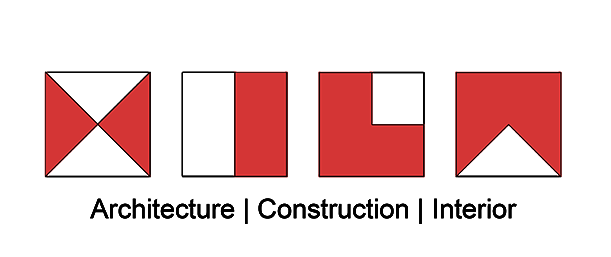Building on the compelling question Can Mythical Powers Inspire Modern Rewards?, we now delve deeper into how ancient archetypes continue to shape our motivations today. Mythology’s rich symbolism offers a profound framework for understanding personal and collective drives, serving as a bridge between legendary narratives and contemporary achievement.
The Psychology of Mythical Archetypes in Personal Motivation
Archetypes—universal symbols rooted in the collective unconscious—play a vital role in shaping our subconscious drivers for success. Psychologist Carl Jung identified these archetypes as recurring motifs across cultures, representing fundamental human motivations. For example, the hero archetype embodies courage and perseverance, inspiring individuals to overcome obstacles and pursue growth.
While mythical powers like Zeus’s lightning or Athena’s wisdom are literal in stories, their symbolic meanings resonate deeply within our subconscious. These symbols serve as mental shortcuts—mental models—that motivate us toward specific goals, such as courage, wisdom, or resilience. Recognizing these archetypes in ourselves can enhance our understanding of what drives our actions and aspirations.
Furthermore, the concept of the collective unconscious—a term coined by Jung—suggests that shared archetypes influence societal norms and individual behaviors. This collective psyche helps explain why certain archetypal stories continue to inspire modern goal-setting and motivation, transcending cultural boundaries and time periods.
Archetypes as Models of Resilience and Transformation
Mythical figures such as Hercules and Odysseus exemplify resilience in the face of adversity. Hercules’ twelve labors represent perseverance, strength, and the capacity for redemption, qualities that remain relevant in today’s personal development journeys. Odysseus’ long voyage epitomizes strategic resilience, adaptability, and the pursuit of purpose despite setbacks.
Cultivating resilience through archetypal narratives involves internalizing these stories as metaphors for our own struggles. For example, visualizing oneself as a hero overcoming challenges can reinforce a growth mindset. Research indicates that narrative therapy and archetypal storytelling improve mental toughness and help individuals navigate setbacks more effectively.
In practical terms, archetypes act as catalysts for transformation. When facing setbacks, recalling the resilience of mythic heroes can inspire persistence, foster hope, and promote personal growth. This process turns ancient stories into modern tools for emotional strength and perseverance.
Mythical Archetypes and Leadership Styles
Leadership is profoundly influenced by archetypal qualities. Leaders inspired by mythic figures often embody traits such as heroism, wisdom, or rebellion. For instance, King Arthur’s legendary knighthood symbolizes noble leadership and the pursuit of justice, while Prometheus’ defiance signifies innovation and daring to challenge the status quo.
Case studies demonstrate how archetypal narratives shape decision-making styles. Modern leaders leveraging these stories often inspire loyalty and motivation by aligning their vision with archetypal virtues. An example is Elon Musk, whose pioneering spirit echoes Promethean daring, fueling innovation and resilience within teams.
Applying archetypal principles involves consciously integrating these symbols into organizational culture. For example, promoting the archetype of the Explorer can encourage innovation, while the Caregiver archetype fosters team cohesion. This alignment enhances motivation, decision-making, and transformational leadership.
The Power of Mythical Narratives in Cultivating Purpose
Mythic stories serve as powerful tools to discover and reinforce personal and organizational purpose. For example, the story of the Phoenix symbolizes rebirth and renewal, inspiring individuals to view transitions as opportunities for growth. Similarly, the myth of King Midas underscores the importance of values and moderation.
During times of uncertainty, archetypes act as anchors. The Warrior archetype can inspire courage during crises, while the Sage offers wisdom in decision-making. By crafting personal narratives rooted in these stories, individuals and organizations can maintain motivation and clarity amidst change.
For instance, leaders who frame their mission as a heroic quest often foster a shared sense of purpose among teams. This approach creates a compelling narrative that sustains effort during challenging times, aligning personal aspirations with larger mythic themes.
Beyond Individual Motivation: Mythical Archetypes and Societal Rewards
Societies have historically leveraged archetypes to promote virtues like bravery, justice, and wisdom. Modern cultural initiatives often reflect these themes, from national heroes to corporate branding. For example, superhero franchises tap into archetypal heroism to inspire collective pride and motivation.
In branding, companies incorporate archetypal themes to connect with audiences on a deeper level. Nike’s “Just Do It” campaign echoes the Hero archetype, emphasizing perseverance and achievement. Similarly, social movements often invoke archetypal narratives to mobilize communities around shared values.
Shared archetypal stories foster community-driven rewards—recognitions that resonate universally and reinforce societal virtues. These narratives create a sense of belonging and purpose, fueling collective motivation toward common goals.
Deepening the Connection: Mythical Archetypes as a Bridge to Modern Rewards
Understanding archetypes enhances the design of reward systems by aligning incentives with universal mythic themes. For example, recognizing the archetype of the Hero can inform recognition programs that celebrate perseverance and achievement, making rewards more meaningful.
Modern incentives can incorporate mythic symbolism—badges, titles, or rituals that evoke archetypal virtues—creating a more profound motivational impact. For instance, employee recognition programs that honor “Warriors” or “Sages” tap into archetypal identities, fostering pride and purpose.
Looking ahead, the evolution of archetypal influences in motivational strategies involves integrating digital storytelling, gamification, and immersive experiences. These tools can reinforce mythic themes, making motivation both engaging and culturally resonant.
Conclusion: Reconnecting Mythical Powers with Modern Rewards
In summary, archetypes serve as a vital bridge connecting ancient mythic symbolism with contemporary motivational strategies. By recognizing and harnessing these universal themes, individuals and organizations can deepen their understanding of what drives achievement and purpose.
As the parent article Can Mythical Powers Inspire Modern Rewards? highlights, mythic symbolism has enduring relevance—offering a wellspring of inspiration that can be adapted to modern contexts. Integrating archetypes into goal-setting and reward design not only enhances motivation but also fosters meaningful engagement rooted in shared human virtues.
“Mythic archetypes are not just stories of the past—they are living symbols that can inspire resilience, purpose, and leadership in today’s world.”
By deepening our connection to these archetypal stories, we unlock a powerful toolkit for fostering motivation that resonates universally and enduringly. Whether through personal narrative, leadership, or societal initiatives, mythic symbols continue to inspire rewards that are meaningful and transformative.



